Based on your self-review, Gyre has created this head summarising how your strengths map into the 9 Leader types.
The head is unique to you.
The circles represent each of the 9 Leader types and the numbers shown as you move or tap over each circle give you your ‘fit-to-profile’ – meaning how closely your pattern of strengths fit with each particular Leader type.
Your strengths map you as Practical-Professional
This page presents the results from your personal Leader types head in graphical format. Use it to explore in more detail what each of the Leader types can contribute to a team. Click on the bar for Leader type to see a fuller description.
Innovators are the restless creators, constantly searching for the next game-changing idea or invention. They are the visionaries, willing to think the unthinkable, to see the world differently, and then to follow through and challenge established ideas and practices. Many of their ideas won't work; failure and appearing foolish are part and parcel of their world. They have boundless curiosity, striving to anticipate how the world may change. They love to ask 'why?', 'what if?' and 'why not?'. They will move quickly from one idea to the next as associations and half-ideas flow to and fro. They leave a stamp of creativity wherever they go, whether it's about finding a new way of organising a to-do list, or radically rethinking how to do space travel.
Fit-to-profile:
6%
Entrepreneurial characters are great at spotting the potential in situations and willing to embrace risks in order to capture opportunities. Their focus is outwards: to markets, customers, ideas and technologies. They are open to change and this openness means that they are willing to embrace new trends that others might dismiss. They will often be the people providing fresh perspective to their team or organisation. They connect easily, and will often have a large network of contacts, which together with their personal resourcefulness and determination to follow through, means Entrepreneurial characters are the people who turn possibilities into reality.
Fit-to-profile:
23%
The Executional character is driven to achieve great results, working tirelessly on challenging tasks until completion. They galvanise and encourage the efforts of others, unaffected by nuances of emotions and politics. They move quickly from ideas to action, often initiating action while the discussion is still happening. They are task oriented and no-nonsense - tools are there to be used rather than polished. With their strong focus on getting the job done, the Executional character is driven to ensure they and their team deliver, moving onto the next task almost before the current one is finished and rarely taking time to draw breath, creating pace and momentum for teams and organisations.
Fit-to-profile:
75%
Practical characters focus on translating strategy into tangible results. They have a strong sense of ownership and quietly effective approach that means colleagues quickly come to know they can rely on them. They are the ones who will stick with something until it's fully implemented and working smoothly. They have a deep understanding of what will work in the real world, bringing realism and pragmatism to a team. At their best, they balance short-term delivery with a long-term perspective, doing things now that will still make sense in the future. Practical characters are often process people, with a sustained focus on improving the quality, reliability and effectiveness of whatever they are leading.
Fit-to-profile:
95%
Strategists provide clarity about overall direction, working from deep analysis to bring insight and guidance. They are the people who inform and shape organisational strategy, anticipating challenges that others miss or neglect. They use these insights to understand how factors might play out in the future, and track the possible impacts on technologies, markets, organisations and people. Often the voice of reason, the Strategist helps others keep sight of the longer-term picture. They balance independent thought and informed decision-making. They value breadth as well as depth of thinking and can bring insight about what needs to happen to move a difficult task forward, but also to unstick a relationship, or handle a tricky people situation.
Fit-to-profile:
21%
The Servant character focuses on the growth and wellbeing of others, guided by their core values and beliefs. They get their own ego out of the way, focusing their attention on their team and organisation. They will bring awareness and sensitivity to emotions and relationships. They care about being inclusive. They pull people together around shared goals, recognising, valuing and playing to people's strengths, helping the team to reach its true potential. Many Servant characters come to personify the team, embodying its core values and identity. They handle conflict with calmness, drawing people together to find resolutions, effortlessly seeing both sides of the argument.
Fit-to-profile:
80%
The Transformational character is driven to bring positive change to the worlds in which people live and work. Their focus is on helping teams, organisations and the wider society find new and productive adaptations to a changing world. They understand that people often instinctively resist change, and they work resourcefully and resiliently to orchestrate changes in beliefs, mindsets, power-structures and culture. They tune into the emotions and relationships around them and are sensitive to the nature of power and influence. They listen as much to what's not said as to what is said, creating fresh perspective and insight for others, coupled with the energising drive to bring about transformational change.
Fit-to-profile:
30%
Charismatic characters paint a compelling vision of the future, generating excitement, energy, and movement. Their excitement about the potential they see around themselves, whether in a person, product or political movement, creates an emotional draw for others. It pulls people towards them, drawing them in through their inner conviction and sense of possibilities and potential. Whether quiet or loud, they build relationships readily, are often charming and connect easily on an emotional level, helping awaken and motivate. The Charismatic character is an engaging story teller, turning something that otherwise might be thorough and analytical but dry, into a story that can ignite passion and spark action.
Fit-to-profile:
26%
The Professional is known for their commitment to mastery of their craft, whether this craft is a recognised profession, a way of working or a knowledge or skill-set. They have high standards and equally high expectations of themselves. They are seen as dependable, disciplined and determined to follow through on what they say. They are dedicated individuals who work diligently in the service of others - especially if they consider someone as a client. They do their preparation, are knowledgeable about their field, and are emotionally even-keeled. Their strength is to work with sustained focus and determination to deliver on their commitments: they have the kind of self-regulation that means little will distract them nor push them off balance.
Fit-to-profile:
82%
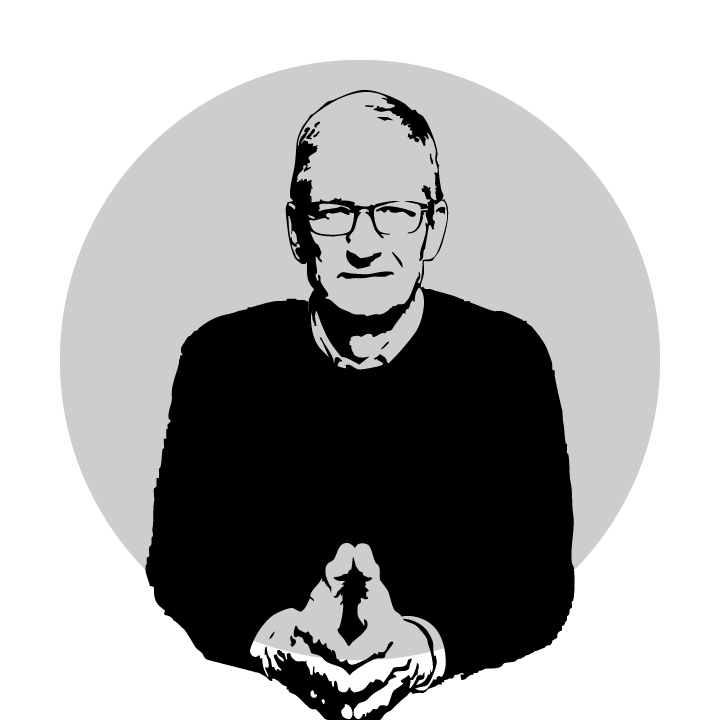
"People follow someone with a clear and compelling vision. But they also need to see that vision translated into action."
Tim Cook (Apple CEO)
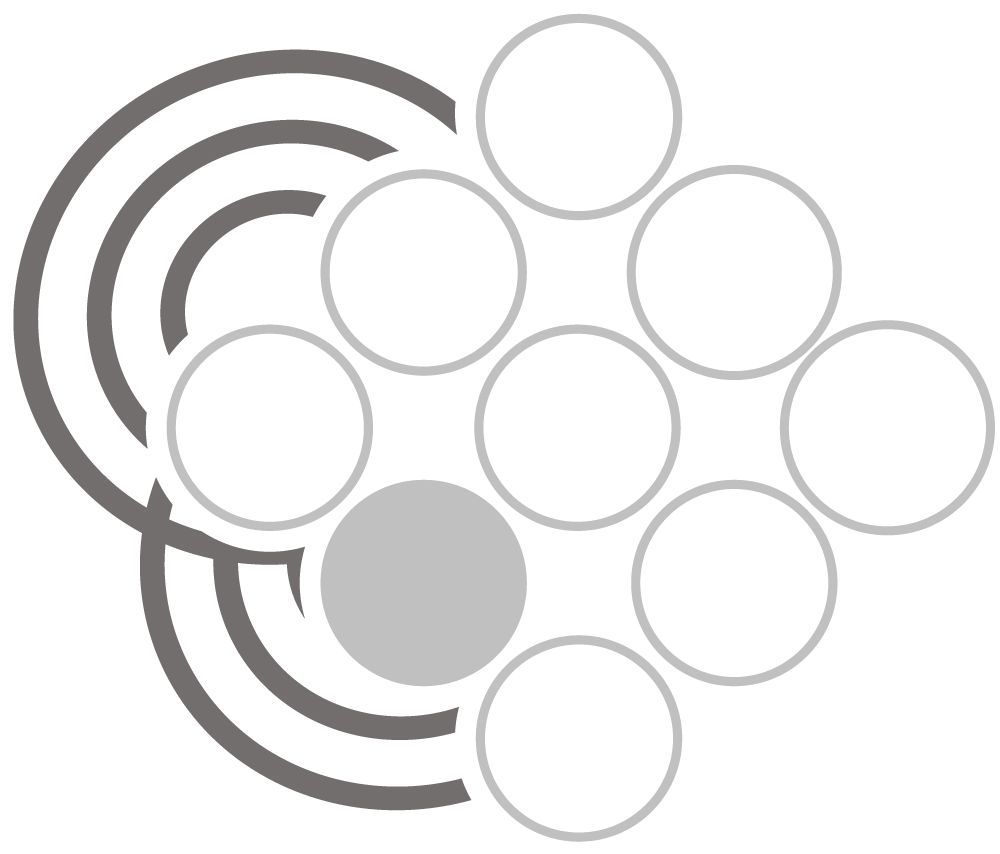
Practical characters focus on translating strategy into tangible results. They have a strong sense of ownership and quietly effective approach that means colleagues quickly come to know they can rely on them. They are the ones who will stick with something until it's fully implemented and working smoothly.
They have a deep understanding of what will work in the real world, bringing realism and pragmatism to a team. At their best, they balance short-term delivery with a long-term perspective, doing things now that will still make sense in the future.
Practical characters are often process people, with a sustained focus on improving the quality, reliability and effectiveness of whatever they are leading.

"Do what you do so well that they will want to see it again and bring their friends."
Walt Disney (Creator of Disney)
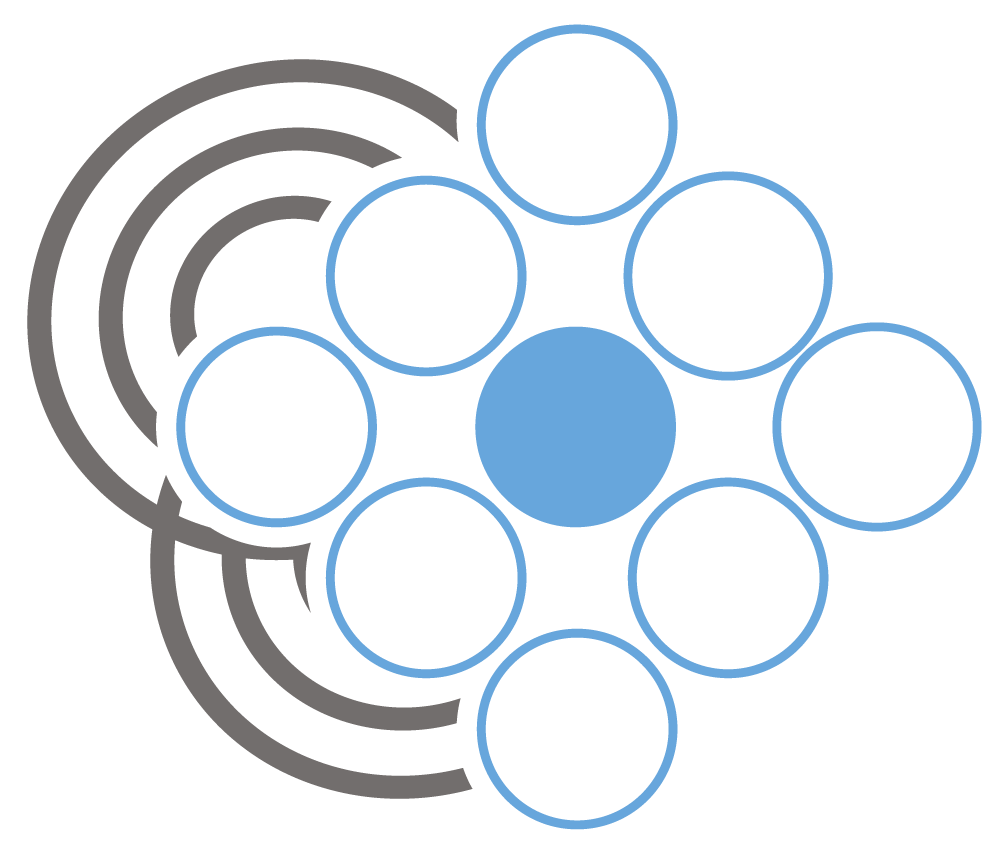
The Professional is known for their commitment to mastery of their craft, whether this craft is a recognised profession, a way of working or a knowledge or skill-set. They have high standards and equally high expectations of themselves. They are seen as dependable, disciplined and determined to follow through on what they say.
They are dedicated individuals who work diligently in the service of others - especially if they consider someone as a client. They do their preparation, are knowledgeable about their field, and are emotionally even-keeled.
Their strength is to work with sustained focus and determination to deliver on their commitments: they have the kind of self-regulation that means little will distract them nor push them off balance.
Based on your strength-mapping, Gyre picks out these as your top 5 Strengths
Based on your strength-mapping, Gyre picks out these as your 5 potential Gaps
The list below shows Vicky's strengths as rated by Vicky:
Here’s what your colleagues are likely to notice and value in your key strengths:
You’ll be seen as someone who stays focused on something until it is done or delivered, even when it means working through obstacles and difficulties and over long time periods. It will be hard to deflect you from your goals and you’re unlikely to be prone to distraction. Colleagues will also know you as someone who encourages others to keep going, as someone who helps the whole team sustain their drive. Not everything is worth persisting with, however, and you’ll be comfortable exercising judgement over when to persevere and when to quit.
You’ll be seen as someone who stays focused on something until it is done or delivered, even when it means working through obstacles and difficulties and over long time periods. It will be hard to deflect you from your goals and you’re unlikely to be prone to distraction. Colleagues will also know you as someone who encourages others to keep going, as someone who helps the whole team sustain their drive. Not everything is worth persisting with, however, and you’ll be comfortable exercising judgement over when to persevere and when to quit.
Ownership is about having a strong sense of duty and conscience in relation to the team and the task. You’ll be seen by colleagues as someone who is keen to play their part for the team, as someone willing to take on their fair share and more of the work. You will take responsibility for your own mistakes but probably also for those of others. Colleagues are also likely to find that you are prepared to take on accountabilities that lie outside your defined role, possibly at the expense of your own needs and interests.
Ownership is about having a strong sense of duty and conscience in relation to the team and the task. You’ll be seen by colleagues as someone who is keen to play their part for the team, as someone willing to take on their fair share and more of the work. You will take responsibility for your own mistakes but probably also for those of others. Colleagues are also likely to find that you are prepared to take on accountabilities that lie outside your defined role, possibly at the expense of your own needs and interests.
You’ll be seen as someone who treats everyone with equivalent respect, who acts in an even-handed way. You’ll be concerned to ensure that everyone has opportunities, and that rewards and acknowledgement are based on the value of people’s contributions rather than personal favouritism. Fairness is also about having a conscience for the group - a concern to do what is right for people individually, and to balance your own needs with the needs of others. Colleagues will feel safe with respect to your intentions towards them, that you will not use power or influence to your advantage or their detriment.
You’ll be seen as someone who treats everyone with equivalent respect, who acts in an even-handed way. You’ll be concerned to ensure that everyone has opportunities, and that rewards and acknowledgement are based on the value of people’s contributions rather than personal favouritism. Fairness is also about having a conscience for the group - a concern to do what is right for people individually, and to balance your own needs with the needs of others. Colleagues will feel safe with respect to your intentions towards them, that you will not use power or influence to your advantage or their detriment.
Others will see you as energised and enthused, as someone who communicates a real sense of immersion and enjoyment in your world and work. Colleagues will see you as having consistently high energy levels. When you engage you’ll find it almost impossible not to do it in a whole-hearted way, and you’ll be drawn to embrace the next challenge or opportunity. Your energy will radiate to those around you, so colleagues are likely to experience you as someone who is a source of energy and motivation.
Others will see you as energised and enthused, as someone who communicates a real sense of immersion and enjoyment in your world and work. Colleagues will see you as having consistently high energy levels. When you engage you’ll find it almost impossible not to do it in a whole-hearted way, and you’ll be drawn to embrace the next challenge or opportunity. Your energy will radiate to those around you, so colleagues are likely to experience you as someone who is a source of energy and motivation.
You will be seen as good at getting clarity about what each person wants to get from a relationship and is prepared to bring to the relationship, and about how you’ll know if expectations are being met. Colleagues will value you for the clarity you bring to objectives and deliverables, but also for ensuring that expectations are two-way and so feel fair. You’re also likely to be aware that people can find it hard to be direct about their expectations and you’ll know how to tune into friction or dissatisfaction as a cue to revisit expectations.
You will be seen as good at getting clarity about what each person wants to get from a relationship and is prepared to bring to the relationship, and about how you’ll know if expectations are being met. Colleagues will value you for the clarity you bring to objectives and deliverables, but also for ensuring that expectations are two-way and so feel fair. You’re also likely to be aware that people can find it hard to be direct about their expectations and you’ll know how to tune into friction or dissatisfaction as a cue to revisit expectations.
Here’s what your colleagues might notice from your gaps
Having a Quick mind is about being able to absorb and make sense of lots of data quickly and not be thrown by complexity. Your own preference is likely to be that you want to take your time when you are facing something new and complex. As a consequence, when those around you are facing a complex issue, you may find yourself following rather than leading the discussion. Colleagues may feel that you take things too much at face value and don’t probe for contradictions and faulty reasoning.
Having a Quick mind is about being able to absorb and make sense of lots of data quickly and not be thrown by complexity. Your own preference is likely to be that you want to take your time when you are facing something new and complex. As a consequence, when those around you are facing a complex issue, you may find yourself following rather than leading the discussion. Colleagues may feel that you take things too much at face value and don’t probe for contradictions and faulty reasoning.
There are two sides to bravery: bravery in the physical, practical world, and bravery within social and personal relationships. It’s possible to have bravery in one but not the other, but overall you’re likely to be reluctant to push yourself outside your comfort zone. Colleagues may be aware that you prefer to keep quiet rather than look foolish and perhaps are too willing to go along with the majority view. In particular, you may be unwilling to challenge those in authority. In the physical world, you’re likely to shy away from facing your fears.
There are two sides to bravery: bravery in the physical, practical world, and bravery within social and personal relationships. It’s possible to have bravery in one but not the other, but overall you’re likely to be reluctant to push yourself outside your comfort zone. Colleagues may be aware that you prefer to keep quiet rather than look foolish and perhaps are too willing to go along with the majority view. In particular, you may be unwilling to challenge those in authority. In the physical world, you’re likely to shy away from facing your fears.
Colleagues may see you as someone who can lack outward confidence, particularly when you are in unfamiliar situations. Within yourself, you are likely to underestimate what you are capable of achieving and colleagues might be surprised at your own self-evaluation and your doubts about your ability to achieve. You’re likely to dismiss and second-guess your instincts and judgements, and as a consequence set your own targets and expectations of yourself lower than others would. Colleagues might also notice that you tend also to be apologetic about your contribution, tending to downplay your ideas and impact.
Colleagues may see you as someone who can lack outward confidence, particularly when you are in unfamiliar situations. Within yourself, you are likely to underestimate what you are capable of achieving and colleagues might be surprised at your own self-evaluation and your doubts about your ability to achieve. You’re likely to dismiss and second-guess your instincts and judgements, and as a consequence set your own targets and expectations of yourself lower than others would. Colleagues might also notice that you tend also to be apologetic about your contribution, tending to downplay your ideas and impact.
You may be seen as someone reluctant to risk the known for the unknown, preferring to protect the status quo and what’s already established and working. Colleagues may feel you tend to be very aware of the risks inherent in acting, but that you fail to spot the risks of failing to act. It may even be that some feel you exaggerate the level of risk in a situation, or that you get nervous or unsure when others are encouraging you to take a risk. The impact will often be that decisions slow down.
You may be seen as someone reluctant to risk the known for the unknown, preferring to protect the status quo and what’s already established and working. Colleagues may feel you tend to be very aware of the risks inherent in acting, but that you fail to spot the risks of failing to act. It may even be that some feel you exaggerate the level of risk in a situation, or that you get nervous or unsure when others are encouraging you to take a risk. The impact will often be that decisions slow down.
Others are likely to see you as someone who tends to accept the prevailing way of thinking about things or seeing situations, even that you see things from a narrow perspective. You may not challenge yourself or others to see things from a fresh perspective, or to generate new ideas and directions. It may be that you don’t see new connections, or that you lack interest in actively being creative, actively using apparent contradictions to gain break-through insight. Or it may be that you simply don’t trust your own creativity.
Others are likely to see you as someone who tends to accept the prevailing way of thinking about things or seeing situations, even that you see things from a narrow perspective. You may not challenge yourself or others to see things from a fresh perspective, or to generate new ideas and directions. It may be that you don’t see new connections, or that you lack interest in actively being creative, actively using apparent contradictions to gain break-through insight. Or it may be that you simply don’t trust your own creativity.
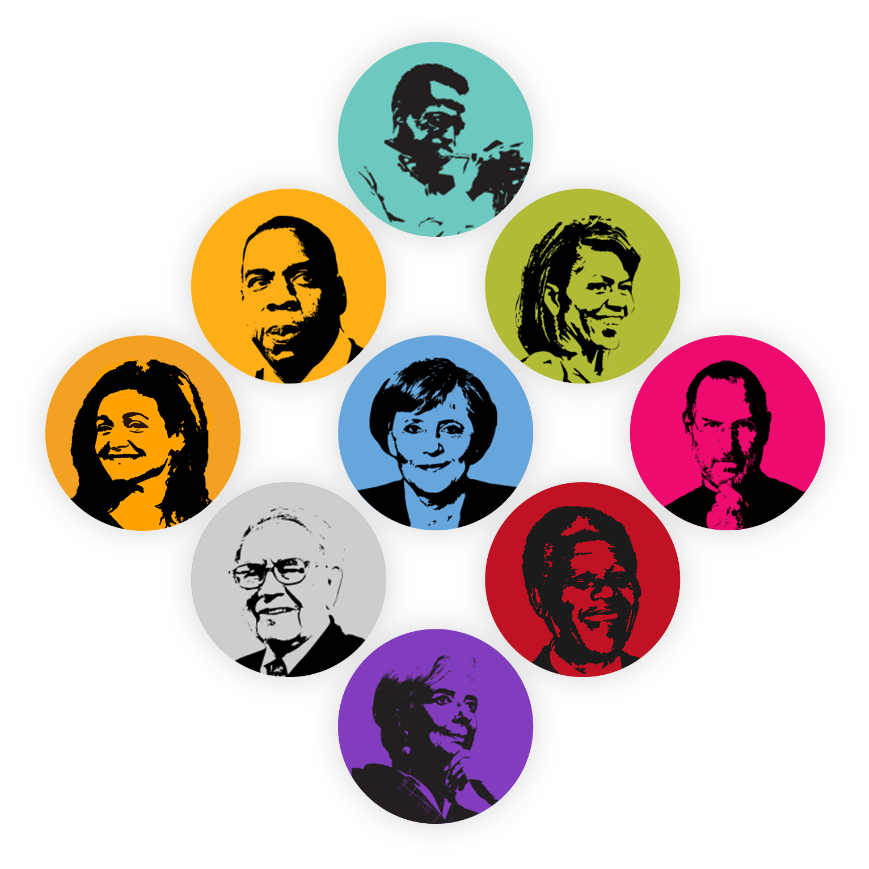

Miles Davis
"They are willing to think the unthinkable, make connections others miss, good at anticipating how the world may change and are willing to make bold, game-changing decisions, even at the risk of failure or seeming foolish."
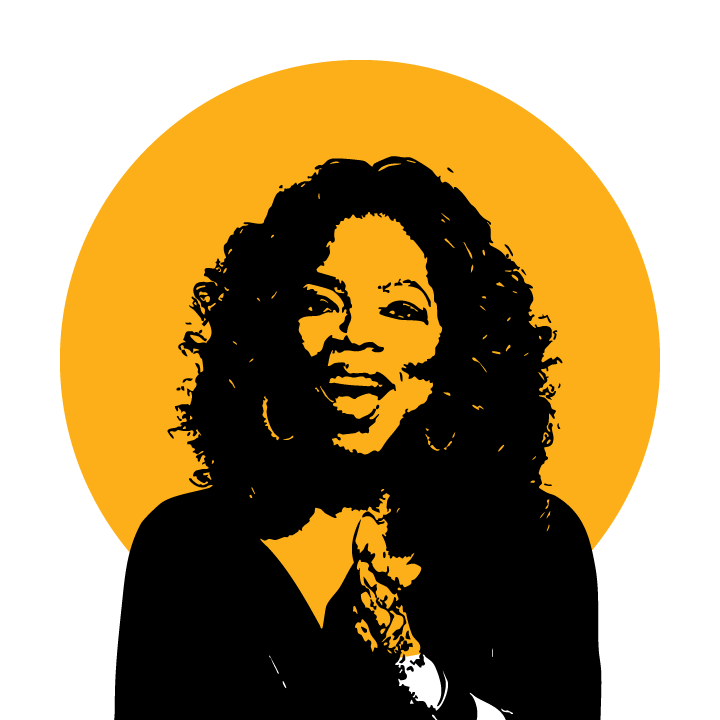
Oprah Winfrey
"They are great at spotting the potential in situations and have the network of contacts, personal resourcefulness and determination to follow through and turn possibilities into reality."

Sheryl Sandberg
"The Executional leader is focused and driven to achieve great results. They will work tirelessly on a challenging task until it is completed, galvanising and driving the efforts of others, often with little or no regard for relationships or workplace politics."

Tim Cook
"They are great at translating strategy into practical results, with a strong feel for what will work in the real world. They balance the short-term with the long-term, bringing a sustained focus on improving the quality, reliability and effectiveness of whatever they are leading."
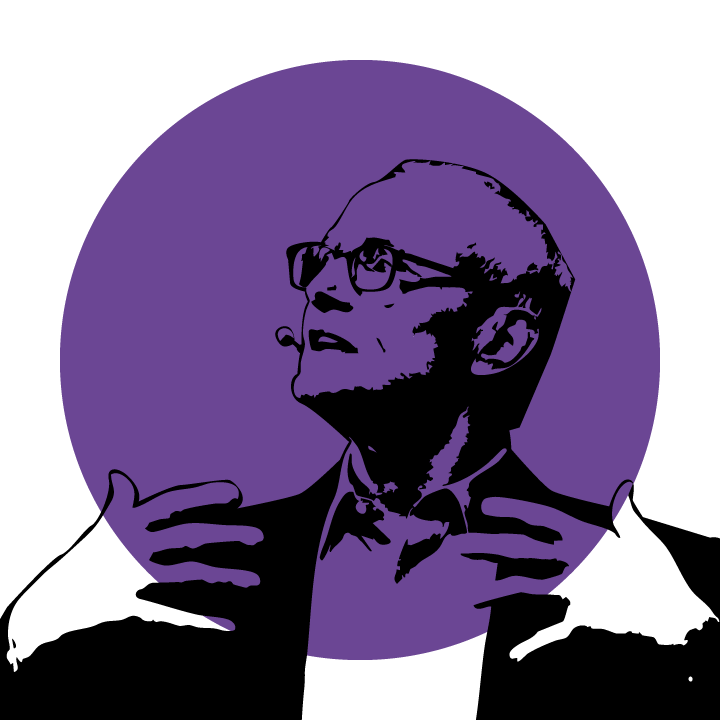
Michael Porter
"They provide strategic clarity to people and organisations. They are valued for their judgement, their wisdom about what is going on and their insight about what needs to happen to move a difficult task forward, unstick a relationship, or handle a tricky people situation."

Nelson Mandela
"The Servant leader gets their own ego out of the way and focuses on the team and organisation around them. They pull people together around shared goals, recognise and play to people’s strengths and inspire teams to perform strongly. Many come to personify the team, to embody its core values and identity."

Malala Yousafzai
"They are great at leading people and organisations through change. Some deliver change in processes, products and structures, but the best are just as good at changing beliefs, mind-sets and culture."

Michelle Obama
"They seem to pull people towards them – who are drawn by their inner convictions and vision. The best create inspiration, energy and change for people, generating a sense of possibilities and potential."

Walt Disney
"Professionals are known for their commitment to mastery of their chosen subjects and their determination to deliver on whatever personal commitments they make. They work with great energy, drive and focus in the service of others."
If you’re curious to know more about the Gyre framework and how the 34 Strengths map into the 9 Leader types, take a look at this video.
It will take less than 5 minutes and give you to the next level of fluency in Gyre: of Flow and Grounded character, Task and People intelligences, and how your distinctive pattern of strengths maps into your leadership contribution.
Gyre is about insight and action.
So far your journey with Gyre has focused on building your insight. You will be most successful in your development if you start from the position of knowing yourself really well. Your self-review and this Solo report are the first steps to this.
The next step is to find out how others see you.
The 'Viewpoints' pathway will guide you to turn to those around you (colleagues, friends, family, partners) and invite them to give you their points of view on you and and your strengths.
The 'Working with your Viewpoints report' pathway will present these views back to you in your Viewpoints report.
At that point you will have a really rich and detailed understanding of yourself and the impact you have on others.
You’ll then be in a position to move from insight into action, building on your strengths and bridging your gaps.